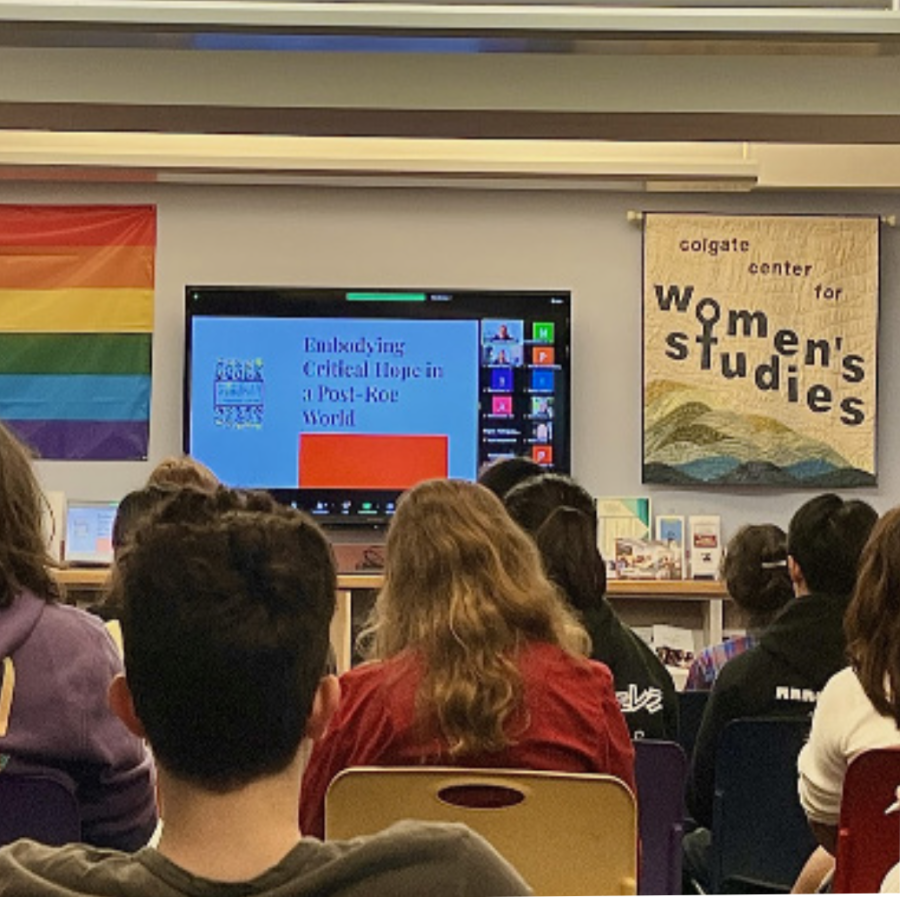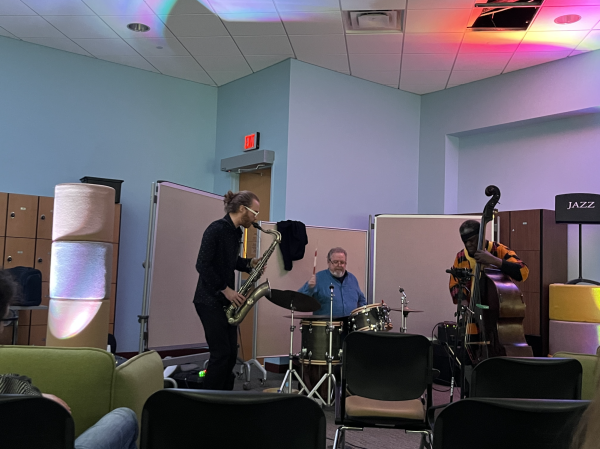Women’s Studies Dept. Hosts ‘Hope in a Post-Roe World’
On Tuesday, Sept. 6, Colgate students gathered in The Center for Women’s Studies in-person and via Zoom to attend one of the first Brown Bag discussions of the 2022-2023 academic year. The session was hosted by Colgate University alum Dena Robinson ‘12 and it focused on hope following the overturn of Roe v. Wade by the U.S. Supreme Court.
Dobbs v. Jackson Women’s Health Organization, decided June 24, 2022, it declared that individuals no longer have the constitutional right to obtain access to an abortion. Among many emotions, a blanket of hopelessness fell over some U.S. citizens as the feminist movement shifted into a new era.
According to Susan Thomson, director of the women’s studies program (WMST) and associate professor of peace and conflict studies, Brown Bag discussions began in 1994.
“We invest in people, specifically student groups. Students have become our activists,” Thomson said. “We talk about whatever is happening at the moment [each week].”
Over 25 years later, the legacy of the Brown Bag series thrives. Although the COVID-19 pandemic has caused a decrease in the number of attendees, the meetings are consistently filled with students who possess a passion for feminism and a thirst for knowledge.
When asked about the climate of the room, Thomson said, “the space has a captive audience, and it is usually the same student activists and staff.” Speakers are selected based on volunteers and requests from the WMST department. This past week, they reached out to Robinson, who has experience with the meetings as an alumna.
For the past two years, Robinson has served as a civil rights attorney in the Employment Litigation section of the U.S. Department of Justice. However, her work in the court of law only reflects a portion of her identity. As a Black, queer, Jewish and first-generation American, Robinson shared her decades-long passion for activism and social justice.
In addition to receiving a bachelor’s degree in political science and women’s studies, Robinson also served on numerous committees and initiatives during her time on campus. Most notable were her roles as a chairperson of the Sisters of the Round Table (SORT), vice president of the Black Student Union (BSU) and vice president of Colgate Advocates, an LGBTQ+ student group.
Her involvement in activism was sparked by the injustices she witnessed on campus and in greater society following the election of Barack Obama in 2008. Robinson noted the changed campus she wanted to attend and did everything in her power to make it attainable.
“The Colgate that I wanted to see was not going to exist by the time I graduated, and I was okay with that. I wanted it to be a drastically different campus when future students of color – especially Black students – or future queer students came onto campus so they did not have some of the experiences I did,” Robinson said.
Although previous obstacles have been conquered, Robinson said the students of Colgate are faced with a new adversary: hopelessness.
“Retaining critical hope in a post-Roe world is essential for us reaching our individual and collective liberation,” Robinson elaborated.
At the discussion, Robinson emphasized the importance of accepting the moment.
“Allow yourself to feel your feelings and to know that whatever you may be feeling is valid. The pandemic eliminated resources for many people and magnified a lot of the feelings that many of us already had,” Robinson said. “We live in a society where we are constantly being pulled in multiple directions.”
To end her discussion, Robinson encouraged participants to draw a cover story about the world that they envision 10 years from now. She urged students to think about their impact on society and what they are hoping to foresee. Numerous students responded, among them first-year Ingrid Vorbrich.
“My ideal world in 10 years is one where the people who write laws think about who it is affecting. The people who write these laws do not think about other people’s perspectives and experiences. I envision a world where empathy has ingrained itself in law,” Vorbrich said.
As a parting message, Robinson shared her motivation to keep fighting.
“I am driven by the knowledge and understanding that I feel deep in my spirit that just because we have done something one way for hundreds of years does not mean we have to continue it. We have the agency to create something new if we are willing and brave enough to do it,” she said.
For more information about the Brown Bag series, go to the Center for Women’s Studies website.







